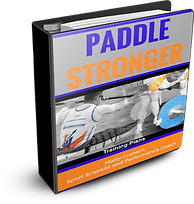Ultra Running Nutrition
- Jun 4, 2013
- 4 min read
In May 2013 EPC Nutrition Consultant Whitney Dagg had her first attempt at a 100 km race. Her race of choice was The North Face 100. The North Face 100 is Australia’s premier ultra trail run held in the breathtaking Blue Mountains National Park.
Below Whitney shares some inside tips on nutrition for ultra running events and some of the things that did not go so well for her.
Fuel:
I had all my food measured into approximately 25g portions of carbohydrate. This consisted of GU Carbohydrate gels, snake lollies, chocolate rice bubble bars, gluten free muesli bars and chocolate coated ginger. My support crew also had creamed rice for a back up food.
The food I had planned went really well for the first 4 hours, and I was eating every 40 min. However, after 4 hours I started having trouble eating. This was something that I had not experienced before, but have heard many athletes talk about. I just didn't like the taste of anything and was basically forcing it down with my sports drink.
I fell behind on my carbohydrate intake at this stage and was actually looking forward to the creamed rice at 54km. And it turns out that this went down really well. It wasn't too sweet and it slid down my throat without any chewing. After this I continued to eat every 40min, and my desire to eat started to return.
You will experience good and bad periods during ultra running, and when you feel yuck at any stage, chances are you will be feeling totally different 10km down the track. At the 64km checkpoint my support crew had a surprise for me. They fed me the custard part of a custard square. Just like the creamed rice, this was really easy to eat, and had lots of carbohydrate to fuel my muscles.
Fluid:
This went pretty well overall, but there are a few things to improve on for next time.
I used Peak Fuel Lime sports drink, which has a lower carbohydrate content than your typical sports drink (around 5%) and is really refreshing to drink.
I filled my bladder with 1.5L to start with and gave my support crew another 3L for refilling at checkpoints. I drank approximately every 15 min with a few good mouth full’s. Unfortunately the first checkpoint that support crews were allowed to be at was 54 km, so I had a long way to go with only 1.5L. I therefore had to make the most of 2 aid stations at 18km and 28km, and drank a large cup of sports drink at each station.
My bladder ran out at about 45 km, so I sneakily asked a few fellow runners for a sip of their water every now and then. I was lucky enough to come across a guy who was planning on pulling out at the 54km mark due to injury; therefore he didn't mind giving me the rest of his fluid.
Once I got to the 54km checkpoint, I refilled my bladder with another 1.5L. I slightly regret this as once I got my pack on and started running it felt really heavy, as I was now fatigued. The next checkpoint was 10km away, so I think I could have got away with carrying less at this point. These are things that you learn for next time.
I also noticed that a lot of runners had packs that held a bladder as well as drink bottles on the outside. That way they could refill their drink bottles at aid stations and distribute the weight of the fluid around their pack, rather than all being in your bladder.
I will be looking for a pack that holds drink bottles for my next ultra.
Final thoughts:
Although I had a rough patch in the middle of the race, I think my nutrition went pretty well as I felt really good in the last 20km. Most of the runners who I was chatting to, didn't feel too great at all during the final stages of this race, and I suspect that their carbohydrate and fluid intake may have been insufficient. I was really excited when I looked at the spit times on the results. Although I was placed 11th in the women, I was the 2nd fastest women for the last leg (90-100km). To me this shows that compared to the other women, I was able to run at a fairly decent pace all the way to the finish, which I believe nutrition plays a huge role in. I can't wait for my next ultra marathon, so I can put my body to the test again.
The most important thing with your nutrition is that if you have had an issue during your race then you need to sit down and review what went wrong and what needs to change for next time. If you do not do this, then these problems will keep impacting your performance in the future.
Whitney Dagg
EPC Nutrition Consultant
whitney.epc@gmail.com
Take the guess work out of your nutrition.










.png)




.png)









Comments